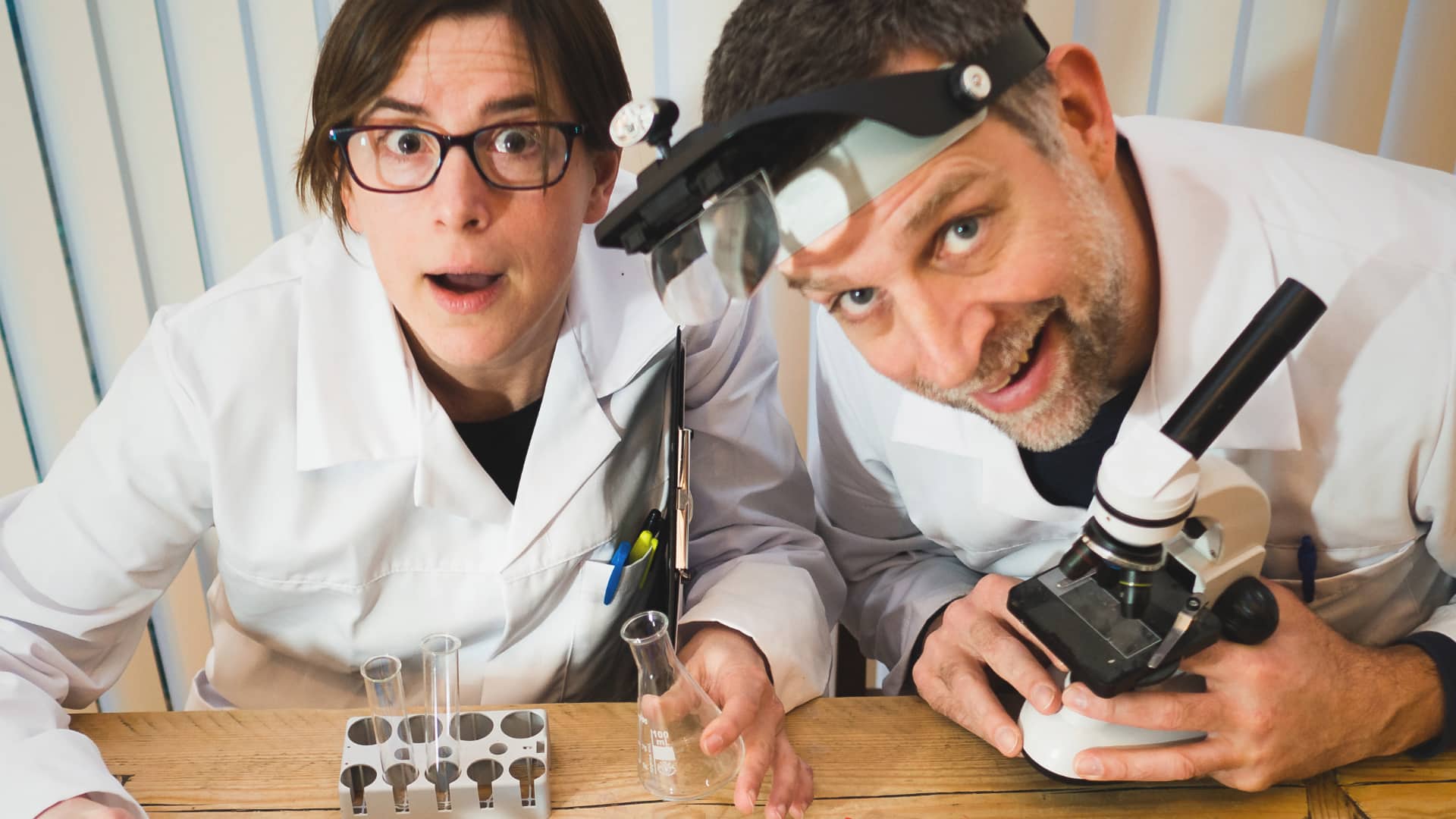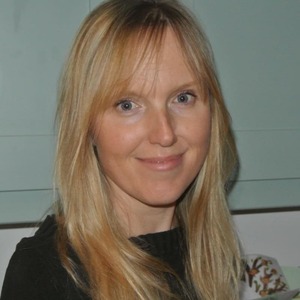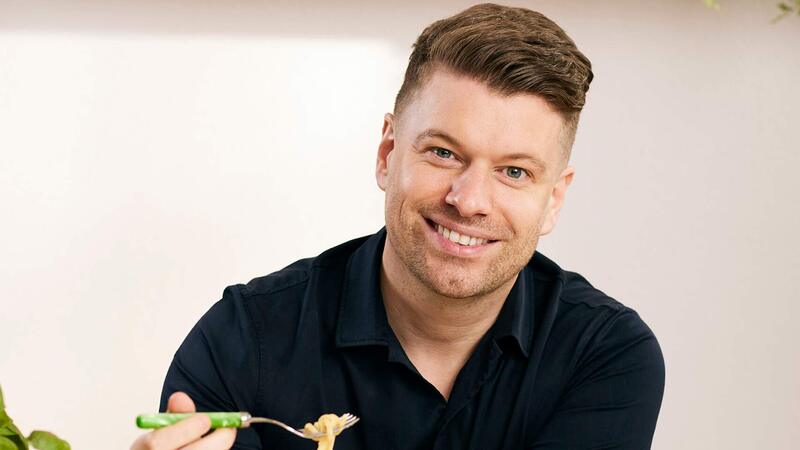You are viewing your 1 free article this month. Login to read more articles.
Sue Hendra & Paul Linnet | 'We wanted to make a moment where the world disappears'
Supertato creators Sue Hendra and Paul Linnet launch a new series on an idyllic remote island
Foreign travel is still a distant dream when I speak to Sue Hendra and Paul Linnet on the anniversary of the first national lockdown, making the setting of their new picture book I Spy Island (Simon & Schuster Children’s Books) impossibly idyllic.
In a blissful-looking ocean lies a beautiful, sun-kissed island. “The sun on your face, the water lapping on your toes, the swaying palm trees,” rhapsodises Hendra. The book was conceived in lockdown, explains Linnet. “Like everybody, we were going a bit stir-crazy. We wanted to make a moment where the world disappears. Everything’s gone, pandemics, Zoom meetings...”
Indeed, I am speaking to the pair on video call from their home in Brighton. A couple since 2006 and co-creators of bestselling picture books ever since, I Spy Island is the first in a news series following a group of island-dwelling friends, along with a different mystery guest, who will wash up on the shore to trigger each adventure. Created in a typically zinging bright palette, there is oodles of playful humour and a focus on fun and friendship. Publisher Helen Mackenzie Smith calls it “a pure shot of sunshine in picture book form”.
The couple were keen to celebrate friendship at a time when so many children have been isolated. “We wanted the reader to feel that they are among friends,” Hendra explains. Linnet cites the TV comedy “Cheers” as an inspiration, likening the show’s characters sitting around a bar to the duo’s little gang on the beach. “The idea of this isolated little world where they all hang out every day, we really like that. There are so many books that have huge expansive worlds, but the idea of having a very limited scope in order to create from is exciting.”
The characters themselves are an eclectic mix. There’s Banana, “very preoccupied with foodstuffs” and inspired by the family dog; “bonkers” Glove; and Bird, who is more serious. Bottle is “a bit of a panicker” who will become more important in future stories. “I like the idea of a character where you can see their emotions,” says Linnet, referring to Bottle’s transparent physique. And then there is Island, such a big force in the story but completely immobile. “It was important to us that the island uses its mind, its imagination to bring about its role,” continues Linnet. None of the characters are defined as male or female, a subtle but deliberate choice to make them as inclusive as possible. Treasure Chest is the first mystery guest. “A massive show-off who brings something of the outside world,” says Hendra. The number of titles in the series will depend, she continues, on how much readers like visiting. “It’s going to be quite strange,” promises Linnet.
An odd couple
Hendra and Linnet’s books are wonderfully strange. On their first date they discovered a shared love of non-sensical juxtapositions, like unpeeling an orange and finding an apple inside. “It was a very subversive chat,” remembers Hendra, “and it wasn’t long before we started talking about fish fingers”. Before their second date Hendra had emailed a roughed-out story to Linnet. This, of course, would become Barry the Fish with Fingers. “The thing we both clearly had in our minds was, nobody is ever going to publish this,” laughs Linnet. This balance between subversive and funny is evident through their work, tempered by the team at Simon & Schuster, who will tell them if things get too weird. “I feel that we’ve got away with quite a lot,” muses Linnet. “You’ve got to keep pushing,” agrees Hendra. “I think children are often intrigued by things they don’t quite understand,” says Linnet, “it makes for an enquiring mind and for imagination”.
Much of what they do, says Hendra, is driven by the desire to get a laugh from the other. Both are passionate about funny books. “So powerful and so often underrated,”says Linnet. “Humour is a door into the minds of even the most reluctant, slightly angry children. When we say this jelly tastes of pee, I feel like we’ve opened a door, they’ll listen and engage.” The pair talk to children about how making up silly stories is a way of looking at something from a different point of view. “Humour can really help you get through all kinds of things,” says Hendra.
Hendra and Linnet are perhaps unique in the way the work. Both of them write and illustrate their books and, of course, they live together. Listening to them discuss the process offers a fascinating insight into their creative collaboration. “One of us will have an idea, but it’s pretty much always Paul,” begins Hendra. “We bounce it and argue it, and play with it. Paul’s ideas are bonkers, and to try and get them to work, to give these characters voices... I love it. It’s like sculpting something.” Linnet thinks more visually, in an almost filmic way, and Hendra will forge that into a book-shaped object with preliminary sketches, some text, perhaps a character drawing. “That will fire me up again,” says Linnet. Living and working together creates a very organic process. “Visually and story-wise, we keep correcting each other,” says Hendra, “and a lot of that happens through the day.” Both will then work on the art and the words, pencil drawings gradually evolving into digital images. There are certain areas Hendra is much better at, says Linnet, praising her particular skill in creating characters. “The positioning of everything, subtle movements and shapes, creates real life for those characters. They have got incredible movement, expression and personality for such simple shapes.”
Supertato is the duo’s most enduring character, with UK sales of the series at more than 750,000 copies. A busy 2021 has already seen Bubbly Trouble published in March, which will be followed in September by Night of the Living Veg. “It’s really scary,” Hendra tells me, gleefully. The dilemma over how scary they can go is, they say, a prime example of their relationship with Simon & Schuster and the nature of compromise. “I like funny,” Linnet adds, “but I think scary is good for children”. Hendra cites the example of “Stranger Things”; “It’s scary, but because you’re in that gang it doesn’t feel overwhelmingly scary. Hopefully children will feel it’s not too scary because Supertato and the Veggies are there. Everyone is in good hands.”









